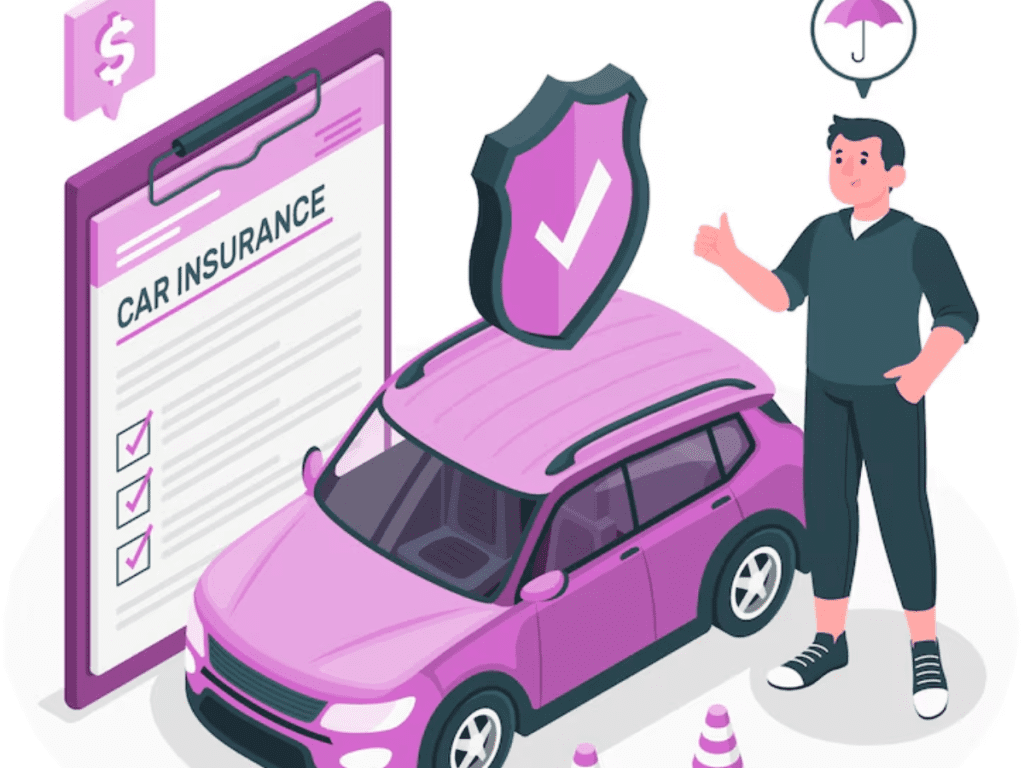Introduction
Auto insurance contracts are generally drafted to meet the particular rules and mandates of the state in which the car is registered. When motorists cross state borders the good news is that most standard motor vehicle insurance policies hold and apply. This is, in large part, the result of reciprocity arrangements between the states within the U.S. which are designed to avoid motorists being unjustifiably penalized merely because they are on the move. These policies require your insurance company to automatically boost your policy levels to equal the state’s minimum coverage levels wherever you are going. For example if you live in a state with a lower minimum for liability coverage and drive into a state with higher mandatory limits your insurance company will bump up your coverage temporarily to satisfy those higher minima. This ensures that you are not driving unknowingly without adequate legal coverage in another state. However, it is essential to note that minimum liability limits can be changed but other parts of your policy like collision comprehensive or medical payments coverage will not change automatically. These coverages stay static as defined in your initial policy and do not adjust to the state laws that you are visiting. Thus, it is vital to check your auto insurance coverage prior to interstate travel to confirm that you are properly covered for all possible circumstances
Temporary Travel vs Long-Term Relocation
The length and type of your trip can greatly influence the way that your auto insurance policy operates. If you are going on a vacation or taking a road trip to another state your existing policy will generally continue to offer coverage without any adjustments. Both liability and voluntary coverages are included provided that you stay in the United States. But if you are moving to another state either for good or for an extended time your insurance becomes complicated. All states have laws that mandate new residents to renew their car registration and driver’s license within a certain period which can be between thirty to ninety days based on state regulations. In addition to this renewal, you also need to change your auto insurance policy to one that is legal and meets the regulations of your new state of residence. Insurance providers generally view a move as a good reason to write a new policy because risk estimates differ by location. Population density traffic flow climate and accident records all impact insurance premiums and coverage levels. If you don’t update your insurance when you move you could be subject to legal sanctions like fines or even suspension of your license to drive. Additionally your insurer might deny claims should they find out that you’ve misrepresented your place of residence. To avoid confusion it is best to inform your insurance company about your relocation in good time. They can guide you through acquiring a policy within the legal guidelines of your new state so you can continue uninterrupted and within the law
Every U.S. state has its own laws regarding auto insurance that can result in dramatic variations in mandated coverage. While liability insurance to pay for bodily injury and property damage is mandated by most states the minimum coverage limits for these coverages differ. Some states also require other coverages like uninsured motorist protection or personal injury protection. For instance, states such as Florida have a no-fault system with personal injury protection while others such as Texas have specific liability insurance thresholds. New Hampshire is a special case in that it does not have auto insurance but does have proof of financial responsibility in the case of an accident. When visiting a state that has greater requirements than your resident state, your insurance policy will typically adjust to comply with those minimum standards. This built-in adjustment keeps you in compliance with local regulations when visiting. But if you do visit a state that has lower requirements, your original higher coverage will still be in effect. This can be beneficial because it gives you wider protection no matter what the minimum legal requirements are in the state you are traveling to. Knowing these differences is important particularly if you are going to be staying for a long period of time or will be driving a lot in another state. Aside from coverage limits other things like claim processes deadlines and fault determination rules may also vary. Being aware of the variations can help you make a better-informed decision and better react in the event that you get into an accident when driving out of state
Automobile Coverage Outside U.S.
As for travel to other countries, your U.S. auto coverage policy will in most instances have no cover elsewhere in the world. The best exceptions are made while visiting Canada. Because of mutual arrangements between the two nations many U.S. insurance companies provide coverage into Canada for liability and optional coverages. However it is important to check this with your insurance company prior to traveling and to obtain a Canadian Non-Resident Inter-Province Motor Vehicle Liability Insurance Card which acts as proof of cover. Traveling to Mexico is a very different situation altogether. Mexican law does not accept U.S. auto insurance and all drivers must buy liability coverage from a Mexican insurer. Certain U.S. companies sell special policies that give coverage in Mexico but these need to be pre-arranged. Without proper Mexican insurance you could face fines vehicle impoundment or even detention if in an accident. For travel outside North America to locations in Europe Asia or South America you will need to secure local insurance or use coverage provided by rental agencies. Some travel insurance policies and some credit cards provide limited protection for international car rental but these are generally limited and do not satisfy local laws. Prior to driving abroad there is a need to look into the insurance and legal requirements of your destination. This can assist you in staying out of trouble with the law as well as providing you with the right financial cover in the event of an accident
Rental Vehicles and Insurance Factors
Rental of a car in a different country or state introduces further complication into the auto insurance dynamics. Your own auto insurance policy in most instances will carry over coverage to United States rental cars. This may include liability along with comprehensive and collision coverage if that is part of your policy. However it is always better to check this with your insurer prior to renting a car. Rental companies provide several different forms of supplemental insurance such as collision damage waivers liability insurance and personal accident insurance. These alternatives are helpful if you do not have a good personal policy or if you simply like the assurance of having extra coverage. Rental car insurance can be provided by credit card companies as a feature when you pay for the rental with the card. This coverage is usually secondary meaning it kicks in after your personal insurance is exhausted but it can still help reduce your financial liability. When renting a car abroad the situation becomes more complex. Many international rental companies include a basic level of insurance in the rental cost but this may be minimal and not sufficient for more serious incidents. Depending on the country you might need to buy additional coverage in order to comply with legal obligations. In such circumstances depending on personal U.S. insurance or credit card protection may not be possible. Prior to departure it is always a good idea to call the rental agency and inquire about their insurance policies and what is optional and what is standard
What to Do in the Event of an Accident Out of State or Overseas
Having an accident on the road while traveling can be a worrying experience particularly if you are not familiar with local law and insurance protocol. Safety should always be the first priority. Make sure that everyone involved is safe and call emergency services if needed. Following resolution of initial safety issues you must swap details with the other motorist including license plate numbers, insurance data and contact details. Take precise documentation of what has happened through photos and note details of what occurred in writing. If the crash happens within a different state then you should ring your insurer at the earliest opportunity to notify them of the crash. All but a few insurers provide 24 hour claims assistance and mobile apps to enable you to report a claim immediately even if you are abroad. Your insurer will assist you with the steps needed and arrange local repair facilities or contact the authorities on your behalf as required. In the event of an accident abroad the process might be more involved due to varying legal systems and language issues. You will need to file a police report notify your local insurer or temporary policy provider and possibly deal with foreign claims adjusters. If your coverage was obtained through a credit card or travel insurance provider contact them immediately for instructions. Some companies offer multilingual support and international legal assistance which can be especially valuable in complex situations

